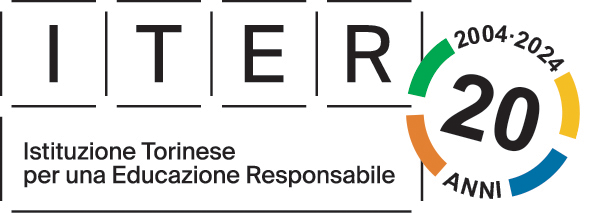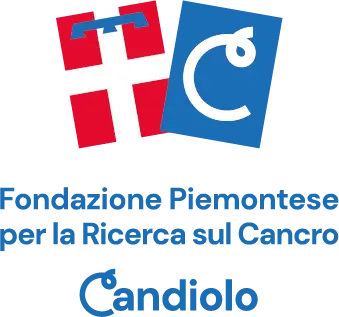Biennale Democrazia
Biennale Democrazia (BD) is a cultural event promoted by the City of Turin and organized by the Fondazione per la Cultura Torino (the Turin Culture Foundation) under the High Patronage of the President of the Republic.
Now in its ninth edition, Biennale Democrazia is a permanent public workshop, rooted in the community, enabling debate among all citizens, able to involve younger generations: its aim is to offer foundational education in political culture and circulate this knowledge turning it into democratic practice.
BD is preceded by workshops and educational journeys for schools, events for young people, as well as discussion workshops. Biennale Democrazia takes place every two years in Turin, with five days of public meetings on how society is changing: lectures, debates, readings, performances, insightful seminars, and moments of active involvement of the public.
Each edition has a program with over 100 events and over 220 speakers. Over time, Biennale Democrazia has established a collaboration network with more than 75 institutions and associations thus enabling a wealth of ideas, suggestions, and proposals to circulate, as well as an active participation of citizens in content-building. This accounts for the large numbers attending, over 45,000 in the last edition, including a sizeable number of young people who were also the main participants of the educational journeys started in over 70 schools of all kinds the previous autumn in Turin and the province, totaling 200 classes and 1600 educational hours. Furthermore, 200 young people from all over the country were given the opportunity to come for the Biennale Democrazia days staying at the Campus residenziali di Democrazia Futura (Future Democracy’s Residential Campuses).
Following the success of the first edition (April 22-26, 2009), with an inaugural lecture by the then President of the Italian Republic, Giorgio Napolitano, at the Turin Opera House (Teatro Regio di Torino),
- The second edition (April 13-17, 2011) was entitled All. Many. A few. (Tutti. Molti. Pochi.) and focused on rethinking the relationship between democracies and oligarchies;
- The third edition (April 10-14, 2013) developed the meaning of the title Utopian. Possible? (Utopico. Possibile?) to debate present day imaginary;
- The fourth edition (March 25-29, 2015) was entitled Passages (Passaggi) and addressed the major changes affecting our lives and conditions for coexistence;
- The fifth edition (March 29 – April 2, 2017) had Emergency Exits (Uscite d’emergenza) as the theme linking the events, rethinking the crisis of our time and seeking “new beginnings”;
- The sixth edition (March 27-31, 2019), entitled Visible, Invisible (Visibile Invisibile) hosted a debate on the novelties and distortions generated by an “extremely visible world”;
- The seventh edition (October 6-10, 2021) was thus called as we observed we can belong to different worlds, despite all inhabiting the same planet, and hence the title One planet, many worlds (Un pianeta, molti mondi);
- The eighth edition (March 22-26, 2023) went by the name of At the Edge of Liberty (Ai confini della libertà) as it dealt with the complex relationship between freedom and democracy, inside and outside the boundaries of our society.
Biennale Democrazia 2025 – Ninth edition
The ninth edition of Biennale Democrazia will be held in Turin from Wednesday the 26th to Sunday the 30th of March 2025.
It has become increasingly difficult to live on our planet, as we witness armed conflicts and global warming, nuclear threats and increasing social tensions, economic, climate related and political migrations and those who flee in search of peace. Nowadays, democracy as a model of peaceful coexistence is confronted with the threat to the very survival of humanity.
The ninth edition of Biennale Democrazia is called Wars and Peace.
The original title in Italian is “Guerre e paci”, where the noun “pace” (peace) has been purposefully written in the uncommon plural in Italian to underline that so as there are many varieties of conflicts, there are also many possible peace-making strategies.
Given its name, this edition must inevitably start by rethinking conflicts, violence and wars, in the light of the current increasing global tension and the persistent threat of clashes within democratic societies, although this is coupled with demands frequently informed by renewed political awareness, especially among younger generations.
Far from being the child of presumed human goodness, the many possible versions of peace are the result of insecure versions of balance, of the need to find agreements for the survival of individuals, groups, institutions, states and the planet.
Conflict and dissent have always been associated with the pluralistic nature of our societies, and that given, democratic institutions need to recover their role as mediators able to settle disputes peacefully as well as prevent the escalation of tensions for the future challenges. However, this is only possible in a context of peace.
Taking on board the intuition whereby democracy is a form of government where heads do not roll but are counted, we will discuss the ability democracy and human rights have in avoiding abuse of power and in preventing the increase of tensions though conflict management strategies, promoting peaceful coexistence among people, nations and living species. This edition will debate the various facets and dimensions of violence and conflict as well as the many peace-making strategies.
The ninth edition is organised into four thematic paths or journeys to better explore the relationship between the different types of conflict and the many peace-making options.
For decades competition among individuals seemed to be the best-suited means to maintain order in ever-changing complex societies. However, currently, we are witnessing the growth of socially marginalized groups, the rise in increasingly radical identitarian needs, and the selfish demands for freedom leading to the detriment of the collective sphere, which promotes unprecedented scenarios where opinions are polarized, dissent is not tolerated, all being also enhanced by the changes in public means of communication. We are faced with lasting and deeply rooted cases of violence – be it social, male, or racial – that lead to an increase in new forms of conflict, at times signs of legitimate requests, especially among the young generations. How can democratic institutions peacefully mediate conflicts, limiting violence without doing away with its collective nature?
We have to accept that wars have dominated human history. Despite the long truce between armed conflicts that have graced parts of Europe for nearly 80 years, hot or cold wars have never disappeared from the world. Currently, the overt clash between large and small powers continues to grow, devastating lives and inflaming public opinion in vast areas of the world. The picture is made worse by the retreat of international law and institutions and by the ever-more threatening, lingering atomic conflict. How do wars change? How do we experience them and how are they experienced in other parts of the world or in other moments in history? The same questions have to be raised for peace, that is which strategies can be implemented to subdue conflicts? What can the history and geography of peace teach us? What tools do the law and economy of peace supply us with?
In our present day and age, looming environmental catastrophes threaten the ability of human communities to manage available resources in a sustainable manner and to coexist peacefully. Conflict is caused by climate change that threatens the food, water, and housing security of millions of people, increasing forced migrations and tensions related to the seizure of limited natural resources. The effort must be to find agreements with international organizations, states, local communities, and individuals in mobilizations and decision-making processes with the final aim of maintaining peace among nations and protecting human survival and our planet’s biodiversity.Imagine Peace, Straddling Utopia and Heresy
Be it present or absent, conflict inspires artistic and philosophical utopias and dystopias. Literature, art, music, cinema and television strongly influence the way we portray psychological, interpersonal, political and military conflicts and the routes to their solution. What images do the various forms of artistic expression offer us to represent a conflict-free world? In a global context with a host of unresolved tensions, can we imagine a future of peaceful coexistence? Drawing on history and culture, what non-warlike “weapons” can human beings avail themselves of to avoid a catastrophe?




